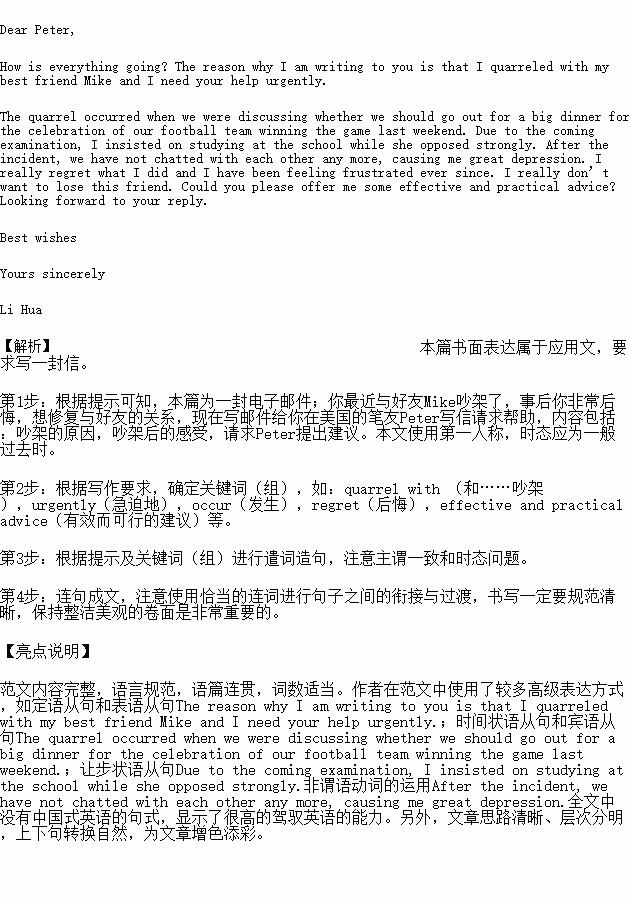题目内容
假如你是李华,最近与好友Mike吵架了,事后你非常后悔,想修复与好友的关系。现在写邮件给你在美国的笔友Peter写信请求帮助。邮件的内容包括:
1.吵架的原因。
2.吵架后的感受。
3.请求Peter提出建议。
注意:1. 词数 100 词左右。
2. 可适当增加细节,以使行文连贯。
____________________________________________________________________________________________
____________________________________________________________________________________________
____________________________________________________________________________________________
____________________________________________________________________________________________
____________________________________________________________________________________________
____________________________________________________________________________________________
____________________________________________________________________________________________
____________________________________________________________________________________________
_______________________________________________________________________

